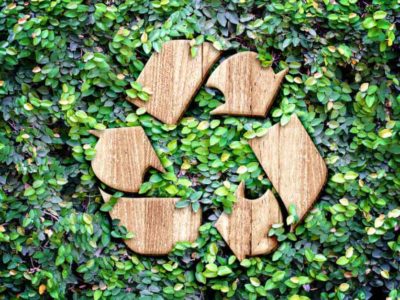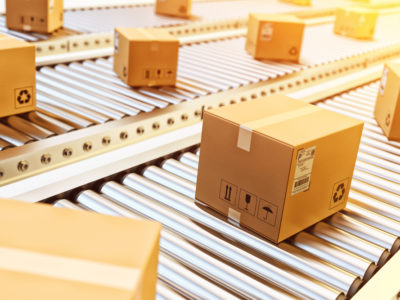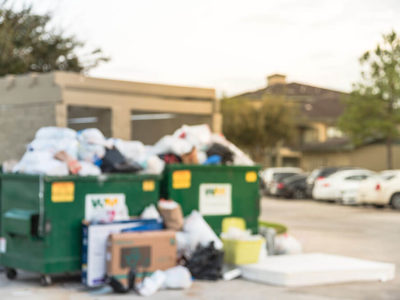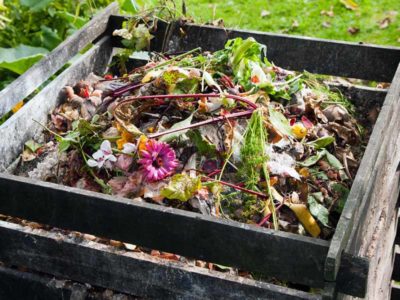You can make your own difference in the world when you reduce, reuse, and recycle every day. Read on to learn the different steps to take to help improve the sustainability of Mother Earth.
What Is Reduce, Reuse, and Recycle?
This is also called the waste hierarchy. It is an order of actions one must take to improve waste management.
- Reduce – Wherein a reduction of waste leads to less recycling
- Reuse – Involves the reuse or re-purposing of items to avoid waste
- Recycling – To transform an item into raw materials that can be made into new items
These 3 R’s help minimize the waste humans discard daily. In doing so, this helps towards conserving natural resources, space in waste landfills, and energy.
There are a few ways to easily incorporate the reduce, reuse, and recycle habits into your lifestyle. Here are some of them:
1. Reduce Paper Waste
Reduce the paper you waste by printing on both sides of the paper and using reasonable font and spacing. Not only does this save space, but it also cuts down on the paper you use by half.
Sending messages electronically is also a great way to reduce paper waste and save on postage as well. You can also take the time to look up mailing lists and remove yourself from them, reducing the bulk of mail you receive.
You can also invest in a bunch of sturdy cloth napkins to use instead of paper napkins. Cloth napkins can take several uses before getting thrown into the washing machine.
2. Avoid Disposable Items
While they may seem convenient, avoid using disposable items like spoons, cups, plates, forks, and napkins. They tend to add up, resulting in vast amounts of plastic waste.
There is no shortage of portable products to use on the go. Portable, collapsible cups, utensils, straws, and beverage containers are on the rise. Be sure to ask establishments like restaurants or cafes to skip the plastic utensils or use non-disposable items instead.
3. Buy Durable Products with Simple Packaging
Durable items last longer, meaning you can use them for years without having to buy replacements. Extended warranties on these items also ensure they receive proper maintenance or repairs.
Avoid products that are wrapped up in excessive packagings like foil and plastic. Excess packaging is wasteful and can only occupy landfill spaces.
4. Reuse Old Containers
Containers such as jars and pots are great items that can be repurposed as storage. Glass jars can be sterilized to contain food items such as pickles or jams, while old pots can be reused for loose items such as old wires, or sewing implements.
Ice cream tubs and cookie canisters can also be repurposed into storage. All you need to do is wash and sterilize them before reusing them properly.
5. Reuse Waste Paper
Waste paper can include a number of items such as old newspapers, envelopes, magazines, pamphlets, etc. One great way to repurpose them is to use them in arts and crafts, instead of buying art materials like stationery.
Old newspaper can make wonderful paper hats, boats, and airplanes. They can even be safely disposed of in a composting pile.
Old color magazines can contribute to many an art project for children, and many craft projects include the use of sturdy magazine pages. You can also gather excess paper like printer overruns and old envelopes into a pile for miscellaneous use, such as scratch paper for children or to write quick notes on.
6. Donate Old Items
Donating items such as books, toys, clothes, electric equipment, and batteries is also helpful. Not only does it free up space in your home, but this also extends the value of the items to others without the things ending up in a trash bin.
RELATED: Talking Trash: How To Sort Your Waste
7. Reuse Grocery Bags
It may sometimes be unavoidable to end up with plastic bags, but they don’t need to go to waste. Reuse plastic bags for whenever you’re returning to the grocery store, going shopping, or storing packed meals.
8. Use Tote Bags
Tote bags made of cloth-like canvas or even recycled plastics are growing in popularity. Many are built to be light and compact yet able to hold up to 30 lbs of weight, making them the ideal shopping companion.
9. Start Composting
Composting is a fantastic way to dispose of waste, and can come back to benefit you as well. Compost results in a soil conditioner rich in nutrients you can use for your garden.
Both large homes with large gardens and farms or smaller homes like urban apartments can be able to start composting. Composting only needs green waste and brown waste:
- Green Waste – These are nitrogen-rich organic materials such as food scraps, manure, coffee grounds, used tea bags, and grass clippings. These usually include wet materials, but must exclude dairy and meat items.
- Brown Waste – These are carbon-rich organic materials like dry leaves, twigs, woodchips, newspapers, and sawdust.
What is compost? It is an organic matter that has undergone a decomposition process called composting. It is often added to soil to help aid in the healthy growth of plants.
10. Buy Recyclable Items
The items you buy can be integral to the entire 3 R’s process. Buying items that can be recycled or materials you can reuse easily is a habit that can make waste management easier.
Glass jars are a prime example of products you can either reuse or recycle afterward. Items made from recycled materials and non-toxic items are also ideal.
Products made with toxic materials can make them difficult to reuse and recycle. These include polystyrene packaging, empty aerosol bottles, and empty paint cans.
11. Buy In Bulk
It may sound counterintuitive to the whole idea of minimizing excessive consumption, but buying in bulk has surprising benefits. Bulk items often use less packaging and are less expensive than when separately bought.
Having many of the same products at a time also lessens trips to the store. Fewer store trips mean less consumption of gas, making it more economically practical.
By making even the smallest changes to your habits, you can make a big change in waste management and our environment. You might even be surprised to learn it’s helpful for your expenses, too!
If you can, share the word to others. Teaching the concept of reduce, reuse, and recycle to kids will also help the young ones develop the habit of waste management early on.
You May Also Like…





